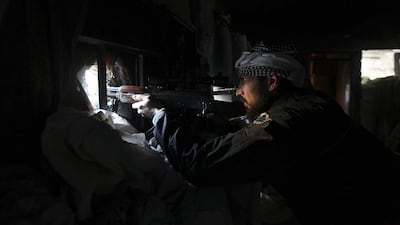Beirut // Aid workers in Syria have long struggled to overcome obstacles preventing them from providing sufficient humanitarian assistance in the war-torn country.
UN Security Council resolution 2139, passed unanimously on Saturday, is a formal acknowledgement that the blockage of aid routes cannot be allowed to continue.
The resolution, backed even by Russia and China, which vetoed three previous resolutions, requires “all parties, in particular the Syrian government” to allow quick, safe and unhindered access for the UN and other aid agencies.
Yet, it makes little provision for how that demand for access will translate into reality on the ground.
The UN resolution includes a requirement for cross border access, a potentially crucial new development that aid organisations have insisted is vital if they are to do their jobs properly.
Until now, all UN financed and administered aid inside Syria has been coordinated with officials in Damascus — something the most recent UN aid plan from December 2013 makes abundantly clear — giving Syrian president Bashar Al Assad’s government massive influence over humanitarian relief; where, when and how much aid gets sent to any given area.
Even UN aid flown from Iraq to the edge of north eastern Syria lands on a regime-held airport and is distributed from there.
Rather than taking the shortest routes to hard hit zones — perhaps entering from neighbouring Jordan, Turkey, Lebanon or Iraq via rebel held frontier posts — UN aid has instead been forced to make long diversions and to cross multiple front lines, delaying, and in some cases blocking, the flow of aid.
With the resolution, that may now change, but it is unlikely to free humanitarian relief from the savagely divided politics of Syria or release it from the machinery of a government renowned for inefficiency and corruption.
“We have been in the unhappy position of having to treat the Syrian authorities as a facilitator for aid when, in fact as we all know but do not say, they are a major obstacle to aid efforts,” said an experienced aid worker involved in Syria operations.
This regime veto over aid is a key factor when it comes to sieges of different neighbourhoods, some of which, like Yarmouk and Moadamiya, have resulted in people starving to death within walking distance of the UN’s offices in central Damascus, all because repeated requests by aid groups to take in food have been denied by Syrian officials.
Aid convoys from the Syrian capital to the war-ravaged east have also been blocked repeatedly since late last year, according to aid workers.
Permission for access was negotiated with rebel factions and the aid workers also had permission from the authorities in Damascus.
However, en route regime security units refused to honour the paperwork, cutting of main roads and blocking convoys.
“We’ve been denied access to places even when we’ve had all the right papers from the government — a security officer once tore up the permissions we had and told our team, ‘even if you had written permission from God, I wouldn’t let you pass’,” the aid worker said.
How a UN resolution will change this is hard to see, even if the Syrian regime, under pressure from its allies in Moscow and Beijing, promises to do as the UN wants.
“The notion of there being a government in Syria is really something of a fiction, the country is run by the security services and they control what we can and cannot do,” the aid worker said.
“You can have a meeting with a ministerial official and they might say ‘yes’, but ultimately it doesn’t matter what they say.”
Rebel groups have also created problems for the flow of aid, something the resolution is powerless to change.
At least three foreign aid workers remain missing, after being kidnapped in northern Syria, and rebel units have shot at and seized aid shipments when supplies are transported through their territory.
Al Qaeda factions, powerful in the north and east of Syria, have intercepted and blocked convoys, and may also decide to attack any new aid routes.
At least 34 Red Crescent volunteers and 13 UN staff have been killed working in Syria. The number could rise if aid groups start to travel around the country more.
The most glaring shortcoming of the UN resolution is the absence of any clear punishment attached for failure to implement it, say critics.
A UN deal made six months ago to remove Syria’s chemical weapons has already run into problems of non-implementation.
“UN aid agencies have been too timid and soft in their dealing with the regime because they worry they will be expelled and their work stopped entirely, the lack of a firm position from security council has been a problem there,” the aid worker said.
But if Mr Al Assad decides aid should still not be allowed to certain places, then his security officers can continue to stop it, with the prospect of facing no sanction worse than the diplomatic demarches the regime is already so familiar with disregarding.
psands@thenational.ae

